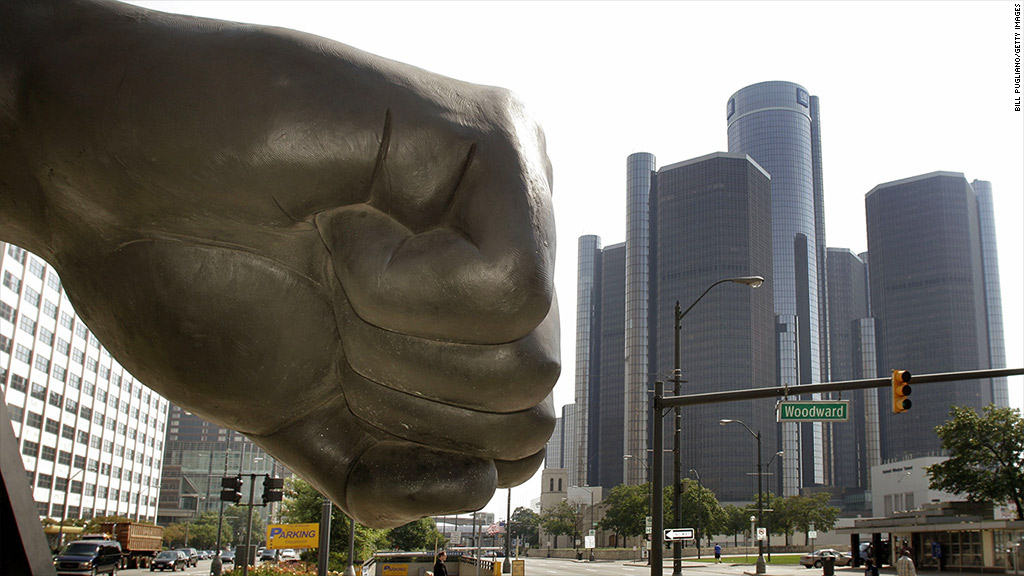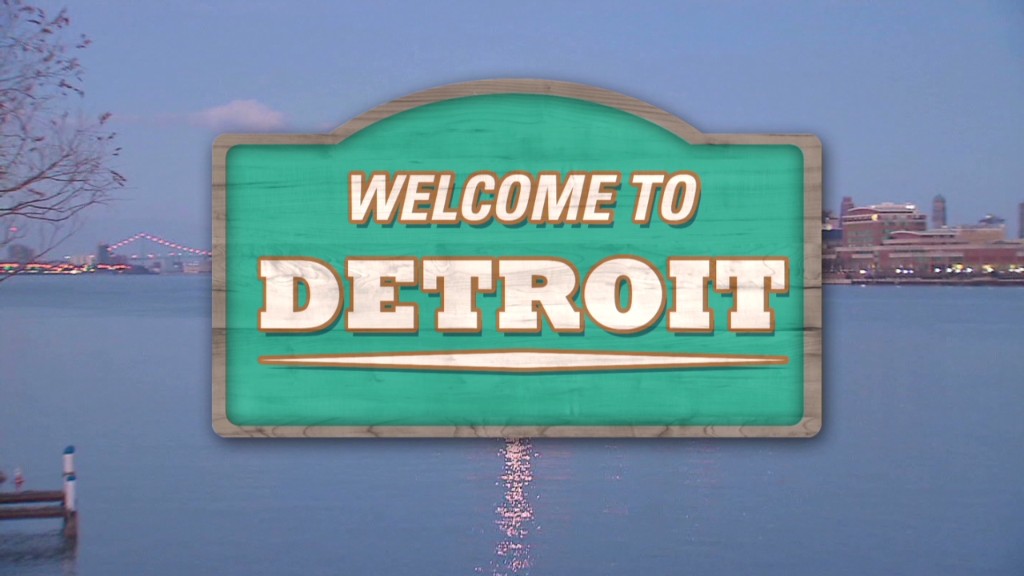
It's been a surprisingly good year for Detroit.
Last year at this time, the city filed for the nation's largest municipal bankruptcy ever. The process has moved much faster than expected.
On Monday, court documents showed thousands of employees and retirees had voted in favor of cuts to their pension benefits, raising the chances that the city will be able to emerge from bankruptcy later this year.
The reorganization plan won the support of about 82% of police and firefighters and 73% of other retirees and employees. Holders of some Detroit debt also voted in favor.
"Even in a non-controversial, non-politically charged bankruptcy, getting to this stage in only a year is quite an accomplishment," said Michael Sweet, an expert in municipal bankruptcies.
Emergency Manager Kevyn Orr, who oversees the city's finances, has struck deals with city unions, pension funds and creditors to shave $7.4 billion in debt off Detroit's balance sheet.
Still, the city's battle to emerge from bankruptcy is not over yet. Holders of some bonds and other city debt voted strongly against the plan, which will leave them with just pennies on the dollar in most cases.
"Everyone knew the bond holders would be kicking and screaming," said John Pottow, a University of Michigan law school professor specializing in bankruptcy law. But their vote against the plan won't be enough to block it from being approved.
Bankruptcy Court Judge Steven Rhodes will have to decide whether to impose the plan on the unhappy creditors. A trial is due to begin Aug. 14.
The cuts to pension benefits could have been much worse. The current plan will reduce benefits by just 4.5%, and eliminate cost-of-living adjustments for employees and retirees from most departments. There won't be any cuts in current benefits for police and firefighters, and they'll only lose half of their cost of living adjustment.
Related: Detroit second most stressed out city
The state of Michigan, a group of charities and foundations and many leading business such as the Big Three automakers, have agreed to chip in $816 million of help in a so-called "Grand Bargain" to ease the cuts for retirees. The cash would allow the city to avoid selling off the artwork in the Detroit Institute of Arts, the city-owned museum, to help pay creditors.

But while retirees fared better than expected, banks and other investor groups holding the city's debt will get less than expected. Judge Rhodes rejected some earlier deals that would have paid them more.
Meanwhile, the city has enjoyed something an economic resurgence. Construction and housing in the downtown area are doing particularly well. Unemployment is still at 8.2%, but it's fallen much faster than the national rate.


